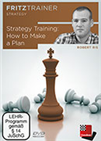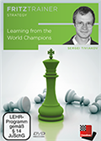On to the semifinals
In all three previous events of the Meltwater Champions Chess Tour, at least one of the quarterfinal matches went all the way to Armageddon. A very different situation was seen at the Magnus Carlsen Invitational, as none of the matches even reached the blitz tiebreakers, with three of them finishing after 3 games (each mini-match lasts 4 games, unless a winner has been found after 3 games).
Moreover, the finalists of the previous event, Magnus Carlsen and Wesley So, needed only 6 games in total to move on to the semifinals. Carlsen will face Ian Nepomniachtchi, who knocked out Hikaru Nakamura by winning the first two games and drawing the third on Wednesday; while So will play Anish Giri, who got the better of Maxime Vachier-Lagrave.
We can safely say that all four players are clearly deserving of their spots in the semifinals. While Carlsen is the favourite against Nepo, who did not show a stable performance in the prelims, So and Giri have been playing enterprising chess successfully throughout. We are in for a couple of very exciting matches!
 In every game of chess, there comes a moment when one is confronted with the question: what should I do now?
In every game of chess, there comes a moment when one is confronted with the question: what should I do now?
Click to enlarge
So 2½ : ½ Firouzja
To say that So’s victory was convincing would be an understatement. The Filipino-born star demonstrated that he can both squeeze positional edges and find sharp tactical resources if the position calls for it. His win in Wednesday’s second game was particularly impressive:
Firouzja had played his usual Caro-Kann, but found a very well-prepared opponent in So. Here, the American spent 6 minutes before deciding on 15.Bd3 — the idea is that after 15...Bxd3 White has 16.Bxa5 Rxa5 17.Qxd3, attacking the knight on g6.
The game continued 17...Kf7 18. Nxa5 Qxa5 (18...g4 was better) 19.Qf5 Qd8:
 The Caro-Kann Defence is one of the most solid replies for Black after 1.e4. Bologan's choice of the Advance Variation for White is because of the complex strategical play in which White has a long-term space advantage.
The Caro-Kann Defence is one of the most solid replies for Black after 1.e4. Bologan's choice of the Advance Variation for White is because of the complex strategical play in which White has a long-term space advantage.
White now brought all his pieces to the attack with decisive effect — 20.Rae1 Ngf8 21.Re7+ Bxf7 22.fxe7+ (discovered check) Kxe7 23.Re1+ Kd6:
24.Ne5 and the last piece joins the onslaught. There followed 24...Rh7 25.Nxd7 and 25...Qxd7 allowing mate-in-one — 26.Qd6#.
Endgame analysis by GM Karsten Müller
Karsten Müller analysed the endgame that arose in the third game of the day — a knight fork festival!
Nepomniachtchi 2½ : ½ Nakamura
Nepomniachtchi also obtained a fine attacking win with white in the first game of the day against Nakamura:
White threatens to play Qe4 next, so Nakamura decided to solve the issue by giving up a pawn at once with 22...g6 23.Rxh6 Kg7. But White’s attack has not been fully neutralized, as Nepo pushed his h-pawn with 24.h4 Bf5 25.h5.
The game continued 25...Rc8 26.Bd2 Bxd3 27.Qxd3 and although the queens left the board after 27...Qf5 28.Qxf5 gxf5 29.Rd6 White’s attack is still very much alive:
Black cannot defend the d4-pawn, which allows White to activate his a1-rook via e1-e3. Nepo combined his rooks with the h-pawn and the dark-squared bishop on the long diagonal to up the pressure and eventually get a 39-move win.
Endgame analysis by GM Karsten Müller
The endgame specialist looks at a game from the first set of the match.
Giri 3 : 1 Vachier-Lagrave
After drawing twice with black and winning game 2 with white, Giri only needed a draw in game 4 to secure a spot in the semifinals. Vachier-Lagrave played carelessly in a must-win situation and was defeated in 20 moves:
 With famous classical examples from the works of the giants, the author talks in detail about principles of chess and methods of play that we can use during every stage of the game.
With famous classical examples from the works of the giants, the author talks in detail about principles of chess and methods of play that we can use during every stage of the game.
White made use of the initiative with 17.Ra4 Rfb8 18.Rxb4 Bf8 19.Rb6:
19...Ng4 and MVL resigned after 20.Bc4. Black is stuck and White threatens to play 21.Be4 next (20...Ng6 fails to 21.Bg5).
Carlsen 2 : 1 Aronian
After getting a clear victory in the first mini-match, Carlsen kicked off day 2 of the quarterfinals with a win. A draw in the second game meant the world champion only needed a draw to move on to the semis. Aronian had a considerable advantage in game 3, but could not convert it into a win. Carlsen later assessed his performance:
It wasn’t very good. Today in general I felt like I played a lot worse than I did the other days. But fortunately I got the job done. [...] I need to sort of pull myself together tomorrow because I need to play a bit better than I did today.
The semifinals kick off Thursday at 16:00 GMT (17:00 CET, 11:00 ET, 21:30 IST).
Links
























